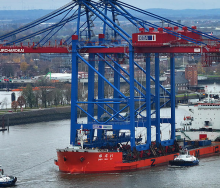Providing clear evidence of decarbonisation is a powerful differentiator for organisations in a global environment where having green targets is a licence to operate.
This was among the observations PwC Africa leaders took away from the COP27 in Egypt recently, the firm noted in its latest South Africa Economic Outlook report for 2022, released on Tuesday. In addition, climate resilience, which could not be achieved without decarbonisation efforts, was a powerful source of protection against disruption and value loss, the report noted. It focuses on opportunities to improve power supply and energy sustainability in the country.
According to data analysed in the report, South Africa reduced its carbon density (grams of CO2 equivalent emitted per kilowatt-hour of electricity generated) by 4.6% in 2021. However, this was largely due to a decline in coal use associated with load-shedding, and not necessarily due to the country actively trying to use less dirty energy.
Prior to COP27, PwC highlighted four net-zero priorities that local private-sector businesses should pursue as part of their front-of-mind strategies. These included decarbonisation of operations and the supply chain, understanding climate risk and building resilience, mobilisation of sustainable capital, and robust audit and ESG reporting.
However, before supply chains can be decarbonised, it is critical to have the necessary data to understand a company’s environmental impact.
Christie Viljoen, PwC South Africa senior economist, said companies’ supply chain emissions often dwarfed the carbon impact of direct operations.
“For most companies, supply chain emissions account for 65% – 95% of their carbon impact. Many organisations recognise the need to tackle these emissions in principle, but are put off doing it in practice by a fear that it is too complex or too costly to do so,” he said.
“However, modern societal expectations are that companies should be committed to contributing towards important societal goals like decarbonisation. In South Africa, it is undeniable that the private sector must play a bigger role in helping address environmental and socio-economic challenges, specifically at the community level,” Viljoen said.
PwC noted in the report that local governments had an important role to play in decarbonisation while reducing the electricity supply deficit. Several options that could address this include self-generation via microgrids and the enabling of more private small-scale embedded generation (SSEG).
Lullu Krugel, PwC Africa Environmental, Social and Governance (ESG) leader, said city authorities had an important role to play in supporting the installation of private SSEG.
“This would allow for increased energy security, especially during planned power outages on the national grid. For example, our research shows that commercial and industrial properties located in Midrand could reduce national electricity load-shedding by one stage if solar power systems were installed on their aggregate roof area of 638 000 square metres. This electricity could be fed into the grid at local substations,” Krugel said.
Load-shedding has led private organisations to explore alternative energy solutions.













